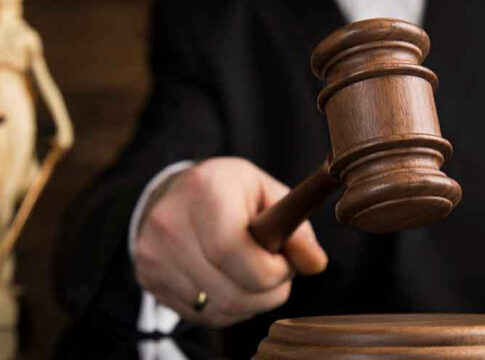In a political chess match that’s raising eyebrows nationwide, Alina Habba remains the acting U.S. Attorney for New Jersey despite judicial opposition, underscoring the escalating battle between executive authority and judicial oversight.
Judicial Opposition Overruled
Alina Habba, a staunch supporter and former personal attorney for President Trump, holds onto her position as acting U.S. Attorney for New Jersey through a strategic administrative maneuver. As her interim term was set to expire, district court judges had voted to replace her with Desiree Grace. However, Attorney General Pam Bondi, a Trump appointee, swiftly fired Grace, clearing the path for Habba to maintain her role through a technicality in federal vacancy laws. This development bypassed the judges’ decision and ensured Habba’s retention, showcasing the administration’s decisive influence over key federal appointments.
This move has stirred significant debate about the balance of power between the executive branch and the judiciary. The District of New Jersey, a jurisdiction tackling high-profile cases like political corruption and corporate fraud, is now at the center of this controversy. The executive branch’s assertive stance in retaining Habba, despite judicial opposition, underscores a broader narrative of political influence in federal law enforcement roles.
Political Maneuvering Sparks Debate
The decision to keep Habba in place is not without precedent. Historically, the removal and appointment of U.S. Attorneys have sparked controversy and congressional scrutiny. This latest incident echoes past tensions, reminiscent of the George W. Bush administration’s U.S. Attorney firing scandal. Critics argue that such maneuvers risk eroding the impartiality of federal law enforcement, while supporters see it as a necessary check on an overreaching judiciary. The Trump administration’s strategy to install loyalists in pivotal positions ignites debate on the separation of powers and the politicization of federal appointments.
Habba’s defiant stance is clear. She publicly stated, “I don’t cower to pressure. I don’t answer to politics. This is a fight for justice. And I’m all in.” Her declaration of independence from judicial opposition highlights her determination to stay in the role. Meanwhile, Bondi criticized the judges on social media, framing their decision as an overreach. The unfolding events demonstrate the administration’s commitment to retaining influence over prosecutorial appointments, regardless of judicial preferences.
Implications for Justice and Governance
The implications of this development are far-reaching. In the short term, the leadership disruption in the New Jersey U.S. Attorney’s Office could delay ongoing investigations and prosecutions. Career prosecutors may feel demoralized by the abrupt changes, raising questions about the office’s independence. In the long term, public trust in the impartiality of federal law enforcement could suffer if the situation is perceived as politically motivated. This incident may fuel debates on legislative reform to prevent similar standoffs, with calls for a clearer, more transparent appointment process.
Politically, this controversy deepens partisan divides over the rule of law and the separation of powers. Socially, it adds to the skepticism about the justice system’s fairness. Economically, prolonged uncertainty could impact federal cases with significant financial stakes. The legal and judicial sectors may face increased scrutiny, with other U.S. Attorney offices potentially experiencing similar tensions if the administration seeks to consolidate its influence nationwide.
Expert Analysis and Future Outlook
Legal experts are likely to scrutinize the legality and appropriateness of the tactics used to retain Habba. Some may argue that the administration is exploiting vacancy laws, while others view it as a legitimate exercise of executive authority. Constitutional scholars might focus on the tension between judicial oversight and executive prerogative in appointments, offering a case study in the politicization of federal law enforcement.
As the situation develops, both critics and supporters of the administration will continue to frame the narrative to support their views. The controversy could serve as a rallying point for further discussions on the independence of federal prosecutors, with potential legal and political actions looming on the horizon. The enduring question remains whether this episode will prompt meaningful reform or further entrench partisan divides in the rule of law.

